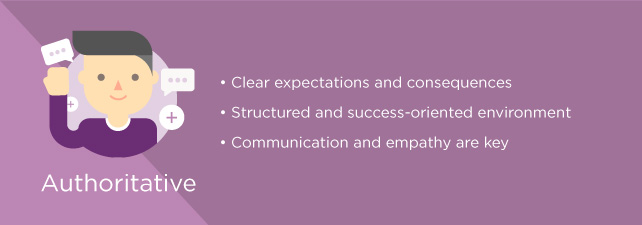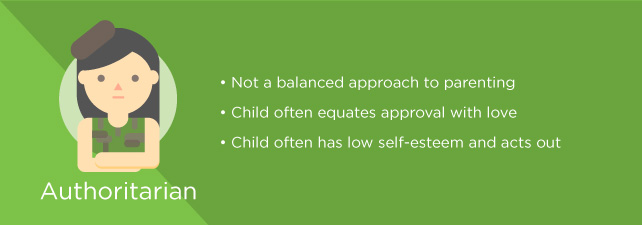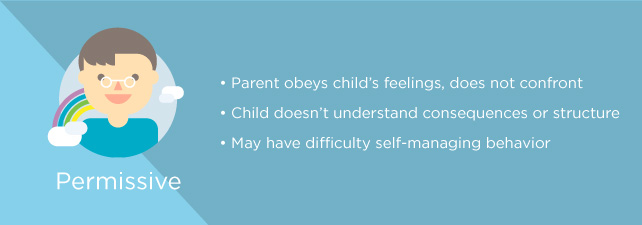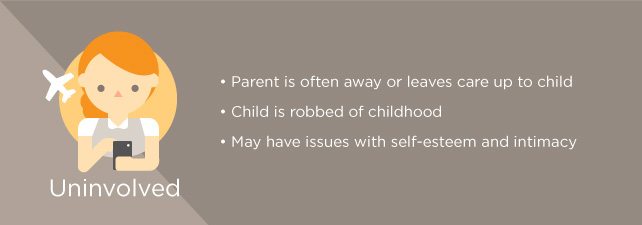Different Parenting Styles
When you’re a parent, there will be times when you wonder if you’re handling a situation in the right way, and there will be times when you’re so frustrated you could scream.
Is Parenting Inherited?
You’re not doomed to repeat the mistakes of your parents. Dr. Gross explains, “The parent who steps back and doesn’t project their own issues and childhood traumas [onto their child] is a healthier parent. We are hardwired to learn and be optimistic, but life happens.”
Three Keys
Dr. Wendy Grolnick, professor of psychology at Clark University, and author of “The Psychology of Parental Control: How Well-Meant Parenting Backfires,” explains that these three dimensions of parenting are important to developing your parenting style:
- Involvement: Researchers have found that when parents invest time and interest in their kids, it has positive effects, such as good self-esteem and academic achievement.
- Structure: Setting clear expectations for kids, so they know what to do and what not to do.
- Autonomy support: Encourage children to initiate their own behavior, involve them in problem-solving, and listen to their viewpoints.
Styles, Explained
Dr. Gail Gross, Ph.D., Ed.D., M.Ed., is a family and child development expert, author, and educator. She says there are four main categories of parenting styles: Authoritative, Authoritarian, Permissive, and Uninvolved.
1. Authoritative

Authoritative parents hold high standards and expectations for their children, while also being empathic and kind. These are parents that advocate for their children. They establish safe, positive, success-oriented environments that encourage strong bonding between parent and child. They have clear expectations for their children that their children recognize immediately.
Parents using the authoritative style structure their child’s environment. They set rules for different situations, as well as chores, meal time and bed time. Homework also has a set structure that includes consistency and follow-through. If the structure is not followed, there are consequences and authoritative parents execute those consequences. So, the child always knows what to expect and what kind of behavior is acceptable, while at the same time feeling supported.
Communication is the key to authoritative parenting. Checking in with a child to see how they feel is important. Dr. Gross emphasizes empathy over defensiveness or judgment. This, she says, opens the door to giving the child a sense of control and helping them truly feel like a part of a family.
2. Authoritarian

This is the strict parent who could have been defined by the biblical phrase: “Spare the rod and spoil the child.” This parent maintains a stern approach to parenting that lacks communication and the possibility of negotiation.
Children of authoritarian parents are often punished for not following rules. The parent does not feel the need to openly communicate, and instead shows the image of being in charge and ‘ruling the roost.’ This parent is often somewhat aloof, not wanting to seem soft and flexible. Nurturing, therefore, is not one of their strong suits.
The authoritarian parent is an example of an out-of-balance approach with too much structure and too little communication, says Dr. Gross. The child of an authoritarian parent often feels insecure, performs for approval, and connects approval with love. They may have low self-esteem and have difficulty maintaining social relationships. Furthermore, the child of an authoritarian parent often acts out when away from their parents.
3. Permissive

The permissive parent is too relaxed and is unable to teach rules, create structure, and be consistent with consequences. Children who are raised without structure have difficulty self-managing their behavior. Permissiveness may be a reaction to their own childhood (perhaps one with an authoritarian parent). Sometimes permissive parents just want to avoid upsetting their child. These parents will go along with a child’s feelings, allowing the child to disobey rules, and compromising rather than confronting conflict.
“Whenever I hear a parent tell me that their child is her best friend, I see a red flag,” Dr. Gross says. “Parents should parent, and parents are entitled to parent. Children should make their own best friends outside of the family unit.”
Freedom without limits is very destructive to child development. Without consequences, children don’t have a sense of self or a sense of boundaries. As a result, a child from a permissive home will seek structure to feel valued, validated, and secure. They may also have problems with relationships, be spoiled, and lack the self-discipline and control necessary for social interactions with peers. School work may suffer from lack of structure and motivation. They may lack a sense of responsibility and have difficulty with boundaries, commitment, and obligation, being unaware of the importance of consequences.
4. Uninvolved

The uninvolved parent is neglectful to their child’s physical and emotional well-being, needs, and safety. They are often away from home and have the child care for themselves. Whether it’s preoccupation with work or social activities, the uninvolved parent prefers to be in places other than with their child. The parent may not even know his child’s peers or teachers.
This kind of neglect can be very dangerous to a child because it affects their sense of self, self-esteem, and well-being. It impacts a child’s ability to trust and form healthy relationships. It also makes the child take on responsibilities far too early, effectively robbing them of a childhood. Children of uninvolved parents often have problems with intimacy and friendship with their peers.
The Takeaway
No parent is perfect, and your parenting style will always include a mix of each of the four parenting techniques. But both Dr. Gross and Dr. Grolnick advocate that you should strive for the authoritative parenting style. They agree that it’s the most effective because it combines involvement, structure, and autonomy support, allowing children to mature and develop the skills they need to form healthy relationships later in life.
Dr. Grolnick stresses that nobody is perfect. She says, “even if you believe in the authoritative style, things can get in the way. We do the best we can.”
Creating a safe, bonded environment that meets children’s needs, and showing them love and respect while also giving them rules and boundaries, will help your child grow into a healthy adult.
Original Post – http://www.healthline.com/health/parenting/which-style-is-right-for-you#1


